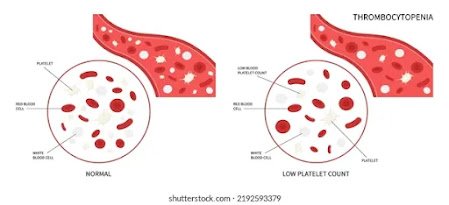1. Introduction
– Why Dementia Prevention Matters
2. Understanding Dementia
– What is Dementia?
– Types of Dementia
3.The Lifestyle’s Impact on the Risk of Dementia
– Diet and Nutrition
– Exercise and Physical Activity
– Social connections and emotional well-being – Cognitive engagement and mental stimulation
4. Medical Factors and Dementia Risk
– Hypertension and Heart Health
– Diabetes and Blood Sugar Management
– Sleep Disorders
5. The Significance of Prompt Identification
– Recognizing Early Signs and Symptoms
– Seeking Medical Evaluation
6. Tips for Dementia Prevention
– Eating a Diet that Is Brain-Healthy – Continuing My Physical Activity
– Engaging in Cognitive Challenges
– Cultivating Social Connections
7. The One Sign of Early Age You Must Never Ignore
– Memory Loss vs. Normal Aging
– When to Seek Medical Attention
8. Conclusion
Now, let’s proceed with the article itself:
Medical Professionals Explain How to Lower Your Chance of Developing Dementia – And the One Early Sign You Should Never Ignore
A growing global concern, dementia affects millions of people and their families. Fortunately, there are actions you may take to lower your chance of contracting this crippling illness. This post will provide the most recent information from medical professionals on protecting your brain’s health and seeing any red flags early on.
Understanding Dementia
The word “dementia” refers to a group of cognitive deficits that interfere with day-to-day functioning rather than a single illness. The most prevalent variety of dementia is Alzheimer’s disease, although there are other varieties as well, such as Lewy body and vascular dementia.Each type has its own set of symptoms and progression.
The Lifestyle’s Impact on the Risk of Dementia
According to research, a person’s lifestyle has a big impact on how likely they are to get dementia. Maintaining a nutritious diet, getting regular exercise, engaging in mental stimulation, and socializing with others can all assist to maintain cognitive function and lower the risk of cognitive decline.
Diet and Nutrition Studies have shown a correlation between a diet high in fruits, vegetables, whole grains, and lean proteins with a decreased risk of dementia. Foods rich in omega-3 fatty acids, antioxidants, and vitamins B and D are very good for the brain.
Physical Activity and Exercise: Consistent physical activity has a significant impact on brain function in addition to maintaining physical fitness. Aim for 150 minutes or more per week of moderate-to-intense aerobic exercise in addition to
Mental Stimulation and Cognitive Engagement: Keep your brain active by challenging yourself with puzzles, games, reading, or learning a new skill. Activities that require problem-solving, memory recall, and critical thinking can help to build cognitive reserve and protect against dementia.
Social Connections and Emotional Well-being: Maintaining strong social ties and emotional support networks is crucial for mental health. Stay connected with friends, family, and community groups to combat feelings of loneliness and isolation, which are associated with an increased risk of dementia.
Medical Factors and Dementia Risk
Apart from lifestyle decisions, certain medical disorders can also affect mental well-being and heighten the likelihood of developing dementia.
Heart Health and Hypertension: Heart disease and elevated blood pressure are recognized risk factors for dementia. Protecting brain function can be achieved by controlling hypertension with medication and lifestyle modifications.
Diabetes and Blood Sugar Management: Diabetes raises the risk of dementia and cognitive impairment. For the sake of brain health, blood sugar levels must be maintained within a healthy range via food, exercise, and medication.
Sleep Disorders: Dementia and cognitive impairment have been related to inadequate sleep and untreated sleep disorders, such as sleep apnea. To promote brain function, make proper sleep hygiene a priority and seek treatment for any sleep-related conditions.
The Significance of Prompt Identification
Earlier Tips for Dementia Prevention
A brain-healthy lifestyle can greatly lower the incidence of dementia and postpone the onset of cognitive decline, even though dementia cannot be completely avoided.
Eating a Brain-Healthy Diet: Make sure your diet is rich in whole grains, fruits, vegetables, lean meats, and healthy fats. Reduce your consumption of sugar, processed foods, and saturated fats as they can cause oxidative stress and inflammation in the brain.
Remaining Physically Active: Make exercise a regular part of your daily schedule. Try to combine aerobic, strength, and flexibility training. Engaging in physical activity increases blood flow to the brain, stimulates neuronal growth, and guards against cognitive impairment brought on by aging.
Taking on Cognitive Challenges: Engage in activities that demand mental work and concentration to keep your brain active. Attempt
Conclusion
In summary, lowering the chance of dementia necessitates a multipronged strategy that includes early detection, prompt intervention, medical therapy of underlying diseases, and good lifestyle choices. You can take control of your brain health and lower your risk of dementia by eating a brain-healthy diet, exercising regularly, fostering social relationships, and getting medical attention for any worrisome symptoms.
Frequently Asked Questions (FAQs)
1. Can dementia be prevented entirely?
Although there is no surefire strategy to stop dementia, leading a healthy lifestyle and taking care of underlying medical issues can greatly lower the risk and postpone the start.
2. How does dementia differ from Alzheimer’s disease?
While Alzheimer’s disease is a particular kind of dementia marked by increasing cognitive impairment and memory loss,



